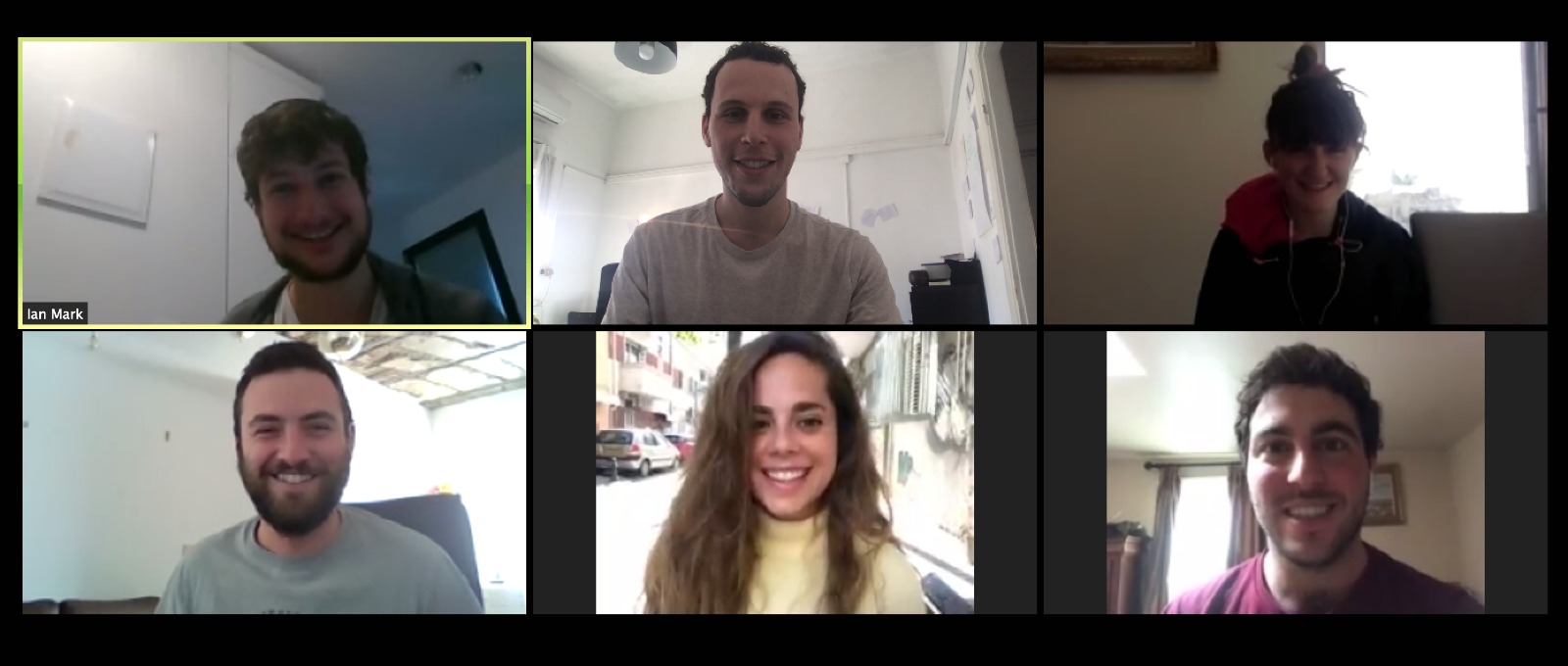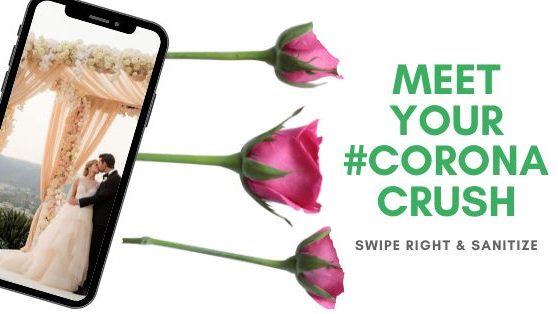Coronavirus Spurs Jewish Dating Revolution
COVID-19 has transformed the way Jews of all affiliations date – perhaps permanently
Sometimes, when we have to rebuild in life, what we create is better than what was originally there. This might be the case when, after the coronavirus pandemic is over, we look back at dating, especially in the Jewish world.
Micki Lavin-Pell, a marriage therapist and relationship coach in Jerusalem, and her colleague, Dr. Meni Koslowsky, are currently trying to capture coronavirus-induced dating changes in a study overseen by an institutional review board at Israel’s Ariel University.
The study, in its early stages and aimed at people of all religions and sexual orientations under age 45, asks them to answer approximately 20 questions online, including queries on their dating practices before the pandemic, and their experiences with virtual dating.
“What we are trying to encourage people to think is that … we’re making history here. Let’s see if we can really learn something about dating and ourselves that will help you better with dating, and see if this can be a good means of meeting someone,” Lavin-Pell told The Media Line.
The responses so far, she says, have been wide-ranging and somewhat surprising.
“We’re trying to look at people’s personalities in relation to whether they prefer doing video dates versus non-video dates, and we want to compare these results. The assumptions would be that the introverts prefer it [more than] the extroverts, but I’m not really finding that,” she said.
“Introverts and extroverts alike are finding that they just really can’t wait until they can meet the person in real life,” she continued. “They’re really struggling with meeting like this because they find it a little bit two-dimensional.”
Lavin-Pell has noticed that the difference between enjoying and not enjoying virtual dating might have more to do with how imaginative people are. Singles, she says, have to generate new ways of making dates engaging, like doing puzzles or cooking together online as opposed to relying on external aids.
“There’s enough stuff to do in real life, and that’s what people are used to doing,” she said. “With video dating, you have to be that much more creative.”
While she acknowledges that virtual dating might be more challenging for older daters, she believes that dating, in general, is universally difficult once you are on your own.
“The more out-there a person is, the easier it becomes to meet people,” she explained. “The more people are willing to step out of their comfort zone and try different things, the more likely they will be to find a partner they will connect and find that chemistry with.”
Changes in dating within the Jewish community apparently have been particularly pronounced.
“More people than ever are interested in talking to a matchmaker to see how it works, especially singles who live alone and are lonely right now,” Jessica Fass, the Los-Angeles based founder of Fass Pass to Love, an international Jewish matchmaking and date-coaching service, told The Media Line.
Daniella Rudoff, a marriage educator and CEO of the Israel-based Marriage Architect, says she sprang into action once the coronavirus hit.
“I saw that everyone was not going to be dating in person, and I was thinking about what can I do to have people meet,” she told The Media Line.
“I don’t believe in waiting to get married. I believe in doing everything you can to get to your goals,” she added.
“I do see from my couples who are dating now on video chat that things can go very well,” she added. “It is possible, if a couple has chemistry, for it to work, but we don’t know if it will result in marriage, which you won’t know until you meet in person.”
The social distancing rules have served as a kind of equalizer for Jews of all branches when it comes to dating in the time of a pandemic.
In the Orthodox world, matchmaking, or shidduchim, has always been the norm, as is a prohibition on physical contact between non-related members of the opposite sex. Now, even secular Jews are increasingly seeing matchmakers and are unable to touch.
“Someone I know joked that ‘everyone is shomer negia now’ because they can’t touch,” Fass said, using the Hebrew term for those who adhere to the prohibition on physical contact.
“They get married faster because they can’t touch, so they’re forced to talk about everything they want in life. Big-picture things,” she explained. “They don’t let the physical aspect get in the way and blind them to the more important things, so I think it’s really lovely, actually, that we have this time just to talk and connect.”
This is apparent with F., a Tel Aviv resident who immigrated to Israel two years ago and works in high-tech. He asked not to be identified for privacy reasons.
“When it comes to dating, you really have to break it down when you’re having conversations [in order] to get to know the person, because it’s not like, ‘How’s your day today?’ Because every day is the same,” he told The Media Line. “Even though you can’t meet, you’ve developed a deep relationship.”
The Orthodox dating scene has also adapted.
“Shidduchim are still taking place virtually online through Zoom,” Donny Frank, a New York-based marriage and family therapist who works in the religious community, told The Media Line.
“As there are less agents for small talk, I advise people to prepare their conversations better than they normally do, and to practice socially distancing from the screen,” he said.
Frank, however, feels that in-person shidduchim are better.
“This is definitely not ideal virtually,” he said. “It’s hard to see if engagements can go through on Zoom.”
Still, he has observed some positive changes, like people being more open to expanding their marriage search outside their area of residence.
“There is more flexibility [in] going out with people outside your comfort zone in geography,” he explained.
Fass has noticed this as well and believes it could last for the longer-term.
“People might become more open to long-distance dating after [the pandemic ends] because they have more patience and they know the connection is more important than where the person is,” she said.
“Somebody can move for somebody,” she added. “It’s not the craziest thing in the world anymore. We’re just going to be so happy that we have the ability to travel again when this is all over.”
Fass also believes that virtual dating is here to stay.
“There will be long-term impacts of the coronavirus on dating,” she said. “I think video chat is going to become the new normal. You can do several video dates in one day and knock them all out, and then decide who to actually meet in person … almost like pre-screening before a job interview before you bring them in for an in-person interview.”
The coronavirus pandemic has also spurred new online dating options for Jewish people.
Ian Mark and Bracha Rapaport are two of the six co-founders of CoronaCrush, a Facebook dating group with an estimated 12,000 Jewish members that started toward the end of March. People on the platform post about themselves or their friends, and then interested parties reach out in the comments or through private messaging.

CoronaCrush co-founders (top, l-r) Ian Mark, Ben Lang, Bracha Rapaport, and (bottom, l-r) Josh Benjamin, Bracha Katsof, and Nicky Hakimi. (Courtesy CoronaCrush Team)
The group recently added speed dating, with matchmaking planned for the future.
“We want Jews everywhere who are seriously looking to get married. It’s not like a hook-up app. I don’t like that culture,” Mark told The Media Line.
“We want people to feel comfortable sharing who they are, and we don’t want [them] to put themselves out there to get messaged by people who don’t take it seriously,” he added.
The group differs from other online dating services, with no “swiping,” as well as a communal approach with built-in peer verification.
“With CoronaCrush, you have friends posting about friends, so somebody is vouching for somebody,” Mark stated.
“They’re writing it out of love because they care about the person, and that adds to it as well. On top of it, you have people’s friends commenting, so it’s like social dating,” he said.
Rapaport says she is “amazed” by “the love and kindness a lot of people have shown to each other” in the group.
“It’s just nice to see that in a time like this… there is so much goodness out there, and it just reminds us that there are amazing, quality, single people,” she told The Media Line.
“Sometimes, it just doesn’t make sense why a person is single,” she went on. “It’s not like there’s something wrong with them; they just haven’t found their person.”
L., a 25-year-old Jerusalemite studying for an MBA and working at an e-commerce firm in Tel Aviv, joined CoronaCrush several weeks ago. He also asked to remain anonymous.
“I’m not the type of person to date someone through [a platform like] this usually,” he told The Media Line. “I like to ask a girl out old-school, face to face, but we are all [human beings] and we’re at home alone, and it makes you do crazy things.”
L. has had two dates on Zoom as a result.
“There are a lot of decent people, and I started talking to this girl, a new immigrant from Chile,” he said. “I wouldn’t run into her on my [daily routine], working in Tel Aviv, so it does open up options that you wouldn’t have [outside] the group.”
As the duration of the pandemic is anyone’s guess, perhaps there will be even more changes to the dating scene before it is over.


